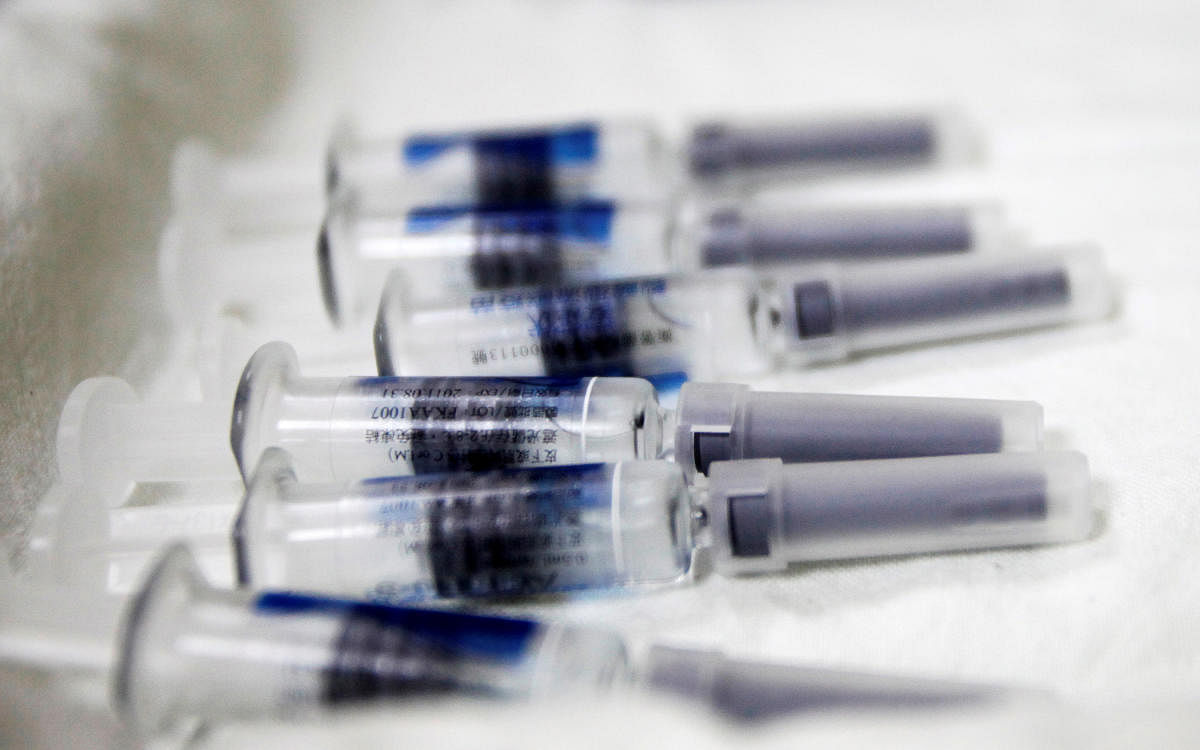Indian scientists have found that BCG – the world’s only vaccine against TB – can be made more effective if nano-particles of curcumin, the main component of the popular kitchen spice turmeric are used in tandem with the shot.
The discovery, scientists say, open up a new window to tackle drug-resistant tuberculosis, one of the world’s biggest public health threats that kills lakhs each year.
Biologists at Jawaharlal Nehru University, Delhi were looking for ways to improve the existing treatment options for TB when they turned their attention to nano-curcumin, an ultra-small version of the wonder chemical that lies at the core of the kitchen spice, known to harbour many medicinal properties.
"We have shown that a booster dose of BCG together with nano-curcumin gives superior vaccine efficacy. This opens up a new area of vaccine research and has huge implications. We are ready for clinical trials," team leader Gobardhan Das from JNU's Special Centre for Molecular Medicine told DH.
Discovered in 1921, BCG is the world's sole TB vaccine, but it only protects children and that too with varying efficacy.
In their experiments aimed at enhancing the vaccine’s efficiency, the researchers first injected laboratory mice with BCG vaccine and subsequently gave them nano-curcumin shots for 30 days.
The JNU team collaborated with KITT University, Bhubaneswar and Vanderbilt University, Tennessee, the USA to source the nano-curcumin and analyzing the results.
When they measure biochemical parameters to examine the immune responses, they found an improvement in the vaccine’s efficacy. Nanocurcumin not only creates an environment conducive for priming and activating the cells that fight against the enemy but also enhances the production of two key immune cells that battle with the bacteria.
“Curcumin nanoparticles hold promise for enhancing the efficacy of TB vaccines,” the team reported in Infection and Immunity, a journal published by American Society for Microbiology.
"This is a significant result with the potential to address a critical unmet need in TB vaccine development, especially when an alternative to BCG vaccine is nowhere on the horizon," said Anand Ranganathan, a JNU scientist and one of the members of the team.
“A vaccine candidate that imparts better protection by BCG would mean fewer antibiotics are required, hence would minimize the chances of development of drug-resistance. This study demonstrates that curcumin nano-particles holds promise to enhance the efficacy of BCG vaccines but more experiments are required to further evaluate its safety and efficacy in other animal models,” commented Ramandeep Singh, from Translational Health Science and Technology Institute, Faridabad, who researches on TB but not associated with the BCG paper.
With nearly 28 lakh cases, India has the world's highest number of TB cases in 2016 even though the researchers fear that there are lakhs who escape the surveillance net. The infectious disease causes one death every 90 seconds and 12 lakh new infections each year besides an economic burden of nearly $ 340 billion between 2006 and 2014.

